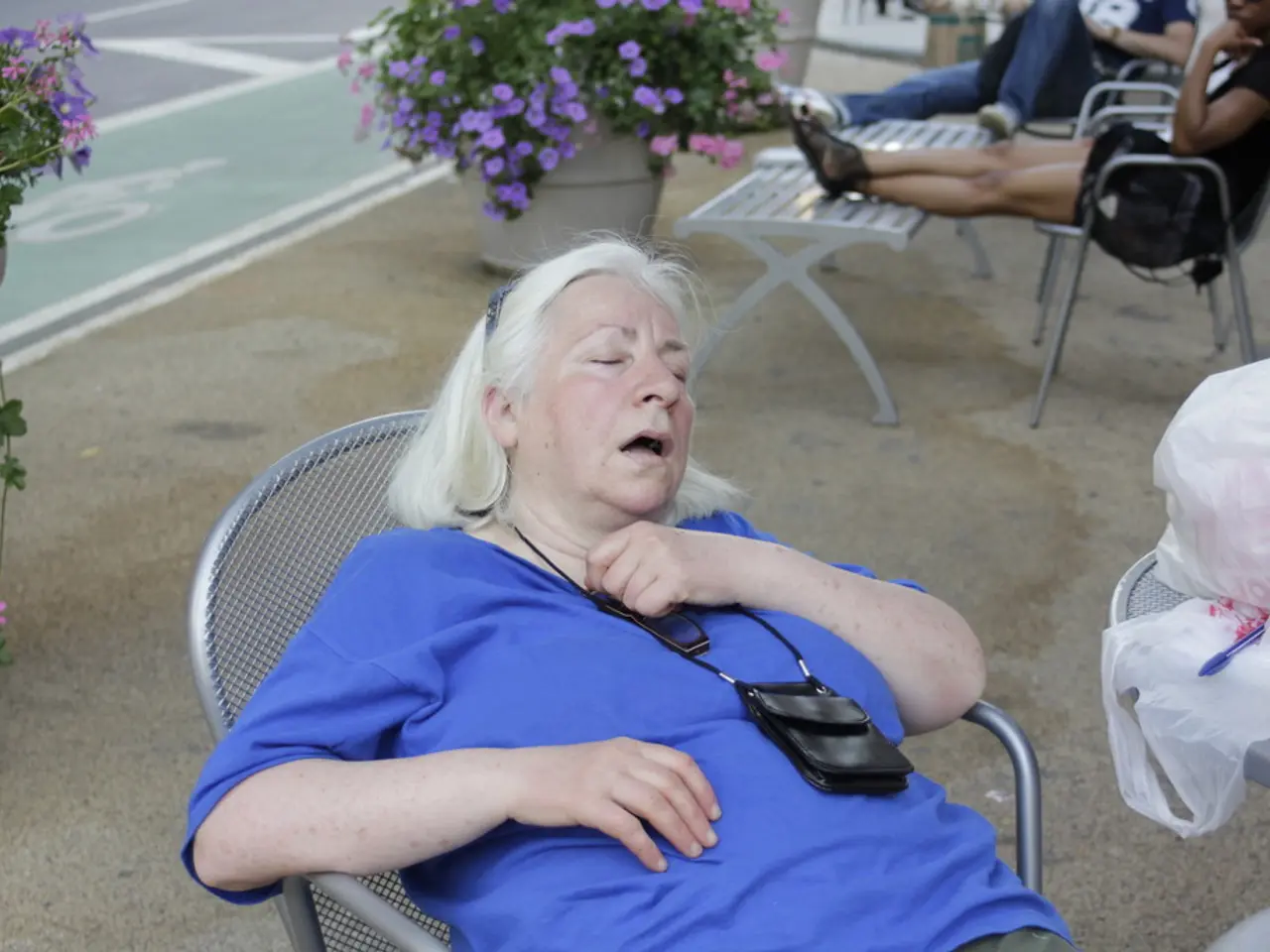Sleep Aid Herbs: Examples, Safety Considerations, Alternative Natural Remedies, and Further Details
In the quest for a good night's sleep, herbal remedies have gained popularity as natural alternatives to conventional sleep aids. Four commonly used herbs – valerian root, chamomile, lavender, and passionflower – are under the spotlight for their potential benefits in improving sleep quality. However, it is essential to understand their efficacy, safety, and interactions before incorporating them into one's sleep routine.
**Valerian Root**
Valerian root, a popular herbal remedy for insomnia, has been extensively studied. A systematic review of 60 studies over nearly four decades suggests that it may help people fall asleep faster, improve sleep quality, and increase time spent in deep sleep [1]. However, the American Academy of Sleep Medicine does not recommend valerian for chronic insomnia due to insufficient evidence of effectiveness and safety [1]. The herb is believed to interact with GABA receptors, promoting relaxation and sleep [2][3].
**Chamomile**
Chamomile, known for its calming effects, is commonly used as a mild sedative before bedtime. While less studied than valerian, chamomile is widely recognized for its ability to reduce anxiety and promote calm [2][4]. The active ingredient, apigenin, binds to brain receptors linked to reduced anxiety and promoted calm [2].
**Lavender**
Lavender, with its soothing aroma, is associated with reduced nervous tension and stress. The components linalool and linalyl acetate are thought to improve sleep quality [2]. However, evidence supporting lavender's efficacy is not as robust as for valerian.
**Passionflower**
Passionflower is noted for its mild sedative and anxiolytic properties, helping to calm racing thoughts and support sleep continuity, especially in those with anxiety-related insomnia [2]. Like valerian, passionflower may increase GABA activity, contributing to its calming effects [2].
## Safety Considerations
Each herb has its unique safety profile. Valerian root is generally safe for short-term use but carries a higher likelihood of side effects compared to the other herbs. Common side effects include headache, upset stomach, dizziness, dry mouth, vivid dreams, insomnia (rarely), morning drowsiness, irregular heartbeat (rare), and may interact with sedatives, alcohol, or anti-anxiety medications [1][5].
Chamomile is very safe for most adults in typical tea doses, with rare allergic reactions, especially in those with ragweed allergies [4]. Lavender is generally safe orally, but more research is needed for oral use, primarily used for aromatherapy [2]. Passionflower is generally considered safe, with mild and uncommon side effects such as drowsiness, dizziness, and confusion [2].
## Conclusions
Valerian root shows the most consistent (though still mixed) evidence for improving sleep, but also carries a higher likelihood of side effects compared to the other herbs. Chamomile, lavender, and passionflower are generally safe, with chamomile having the best-documented calming effects, while lavender and passionflower offer additional support, especially for stress- or anxiety-related sleep issues [2].
All herbs should be used with caution in individuals taking medications or with underlying health conditions, and long-term or high-dose use should be discussed with a healthcare provider. For chronic insomnia, none of these herbs are currently recommended as first-line treatments by major sleep organizations due to limited and inconsistent evidence [1]. They may be more appropriate for mild, situational sleep disturbances or as complementary approaches.
Melatonin, a hormone that regulates sleep and wakefulness, is not recommended by the American Academy of Sleep Medicine for insomnia due to a lack of evidence supporting its efficacy. People should consult a doctor or pharmacist before taking any medication or herb to assist sleep.
- In the health-and-wellness industry, herbal supplements like valerian root, chamomile, lavender, and passionflower are gaining popularity as predictive alternatives for sleep aids.
- Valerian root, known for its potential to aid sleep, particularly with insomnia, was tested in 60 studies over four decades and may help individuals sleep faster, improve sleep quality, and increase deep sleep time [1].
- Chamomile, recognized for its calming effects, is commonly used as a mild sedative before bedtime, reducing anxiety and promoting calm [2][4]. The active ingredient, apigenin, binds to brain receptors linked to reduced anxiety.
- Lavender, with its soothing aroma, is associated with Reduced nervous tension and stress, potentially improving sleep quality [2]. However, evidence supporting lavender's efficacy is less robust compared to valerian.
- Passionflower is noted for its mild sedative properties, purportedly calming racing thoughts and supporting sleep continuity for those with anxiety-related insomnia [2]. Like valerian, passionflower may increase GABA activity.
- Valerian root carries a higher likelihood of side effects compared to the other herbs, including headache, upset stomach, dizziness, and interactions with specified medications and alcohol [1][5].
- For people with COPD, ulcerative colitis, eczema, bipolar disorder, or depression, the safety of these herbs may be compromised, and caution is advised when incorporating them into one's sleep routine.
- Consulting a doctor or pharmacist is essential before taking any medication or herb as sleep aids, as the American Academy of Sleep Medicine concludes that there is limited and inconsistent evidence supporting their efficacy for chronic insomnia.




